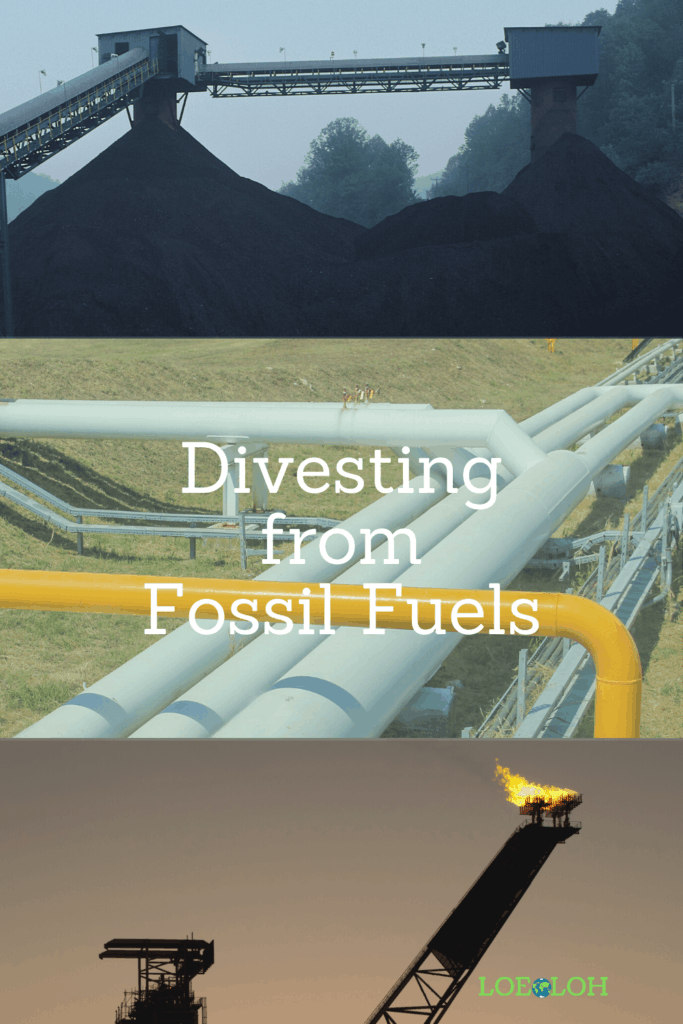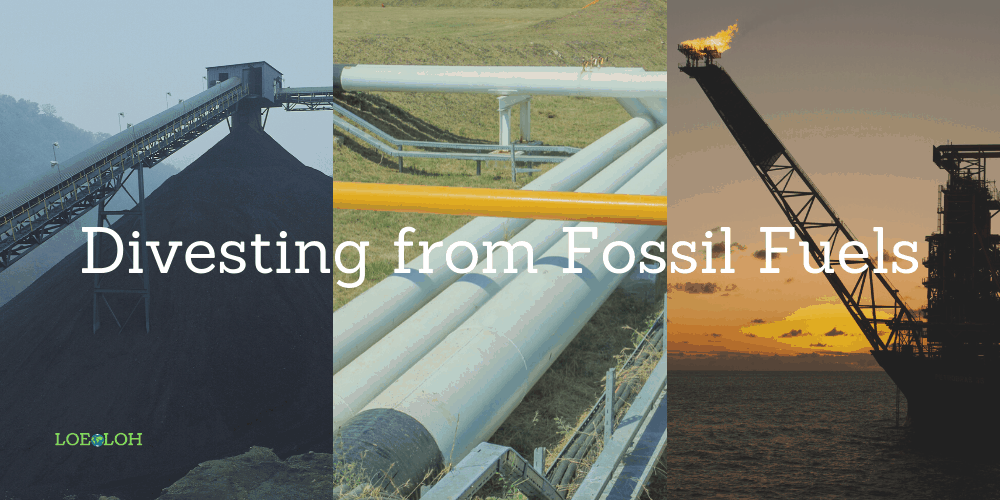In recent weeks, several institutions including Oxford University, University of California and over 40 different religious groups have divested from fossil fuels. Divesting means to sell or remove investments, another term for this is disinvest. When institutions or organizations divest from fossil fuels, they are no longer funding fossil fuel industries or other institutions who invest in fossil fuels themselves. Divesting from fossil fuels is excellent news for the fight against climate change. Please note, I am not a financial professional in anyway. This post is only to be used as information and not to replace professional financial advice.
Why divest from fossil fuels?
As an article from The Guardian eloquently points out, the two fundamental reasons to divest from fossil fuels are moral and financial.
1. Morally right
First, it is immoral to continue to invest in fossil fuel companies knowing the impact that burning coal, gas, and oil has on climate change. Allowing the fossil fuel industry to continue on the same disastrous path we are not only affecting ourselves but also future generations. The following is a crude (pun intended) example; to continue to invest in fossil fuel companies is like investing in tobacco companies, knowing the harmful effects of using tobacco products. It is not right to continue to fund fossil fuels companies that destroy our common home. If we have money invested in fossil fuels we should question what does this mean for ourselves, future generations and our Earth.
Divestment is literally putting our money where our mouth is. As many individuals, including myself, and organizations voice the importance of fighting climate change and caring for our Earth, we need to back our values up with how we choose to invest our money.
Divestment has been used before to fight against immoral issues including the violence in Darfur and the apartheid in South Africa. The last president of the apartheid, F.W. de Klerk stated, “When the divestment movement began, I knew that apartheid had to end.” Hopefully, the divestment movement against fossil fuels will be another example of a successful end.
2. Financially sound
Second reason to divest from fossil fuels is for the financial benefits. MSCI, or Morgan Stanley Capital International, found that investments without fossil fuels have earned more than investments with fossil fuels. Investments without fossil fuels continued to perform better than those with fossil fuels even in April 2020, in the midst of the economic downturn during the ongoing COVID 19 pandemic. The Rockefeller Brother’s Fund (RBF) is an example of an institution that has financially benefited by divesting from fossil fuels. They initiated their divestment from fossil fuels back in 2014 and their growth has exceeded their targets. On RBF’s website they state, “We’re confident that sound portfolios can be created without exposure to fossil fuels.”
As fossil fuel free investments have done better in the past and present, BlackRock, the largest asset management company in the world, is looking to the future. Larry Fink, the CEO of Blackrock, recently announced in his CEO letter that they will no longer include companies that earn more than 25% from fossil fuels in their actively managed portfolios. He explained climate change has added risk for long term investments.
Fossil fuel companies are no longer financially sound option because the world needs to rapidly transition away from fossil fuels as a primary source of energy to prevent the worst effects of climate change.
How to divest from fossil fuels?
You and I will be on this journey of divesting from fossil fuels together. Luckily for us, there are plenty of online resources available to get us started from home. Like many climate change solutions, divesting from fossil fuels can occur at all levels of society. Beginning with us as individuals, through various communities and institutions, and all the way up to entire countries.
Divest Your Own Money from Fossil Fuels
Check out, Fossil Free Funds, to see if you have investments in fossil fuels. If you would like to learn more about how to personally divest from fossil fuels here are some how to guides from DivestInvest, TrilliumInvest, and The Guardian that may help you. I also recommend speaking with financial experts, like a fiduciary financial advisor to assist with divesting from fossil fuels.
Join the Movement, Campaign for Institutions to Divest from Fossil Fuels
So far almost 1200 institutions have divested from fossil fuels, this includes universities, banks, pension funds, governments, faith based groups, and more. If you are a part of an organization and want to divest from fossil fuels, DivestInvest has some guidance of how to do so.
Fossil Free is a part of 350.org. They campaign for institutions to divest from fossil fuels, transition to renewable energy, and to ban new fossil fuel projects. The organization provides information for grassroots groups all over the world. Check out how to get involved with an established group, how to start your own group, or donate.
Stop the Money Pipeline campaigns/advocates to financial institutions to divestment from fossil fuels. They focus on the top fossil fuel funding banks like JP Morgan Chase and insurance companies like Liberty Mutual.
The onus of climate change mandates us to swiftly move away from fossil fuels to power our future. Divesting from fossil fuels will help push the switch to renewable sources of energy for a brighter future.


